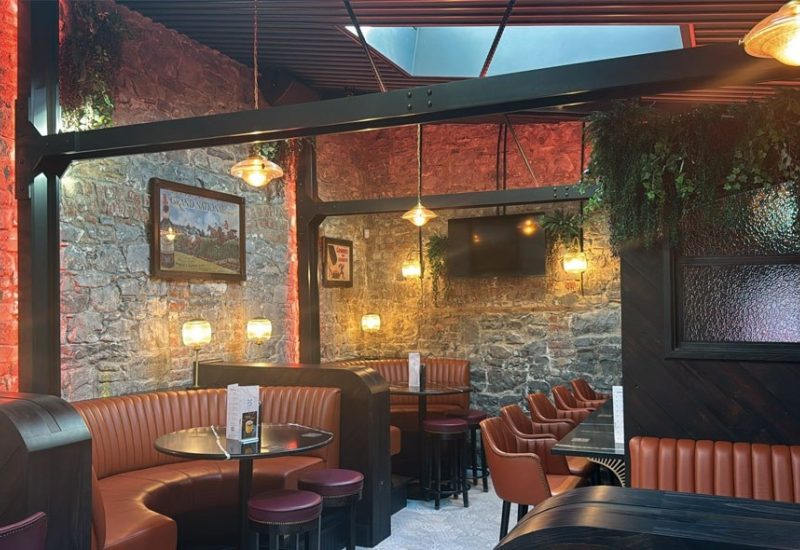Securing the future of Ireland’s wood industry
Collaborative solutions to the skilled labour shortage

By Barby O’Hara, Founder of PHConnect
Ireland’s wood industry – spanning specialist joinery, interior fit-outs, cabinetry, and construction – is at the heart of many of the country’s most innovative projects. As demand rises across both public and private sectors, businesses face a welcome yet complex challenge: a persistent shortage of skilled labour.
At PHConnect, a recruitment and outsourcing agency that supports Irish companies with tailored workforce solutions, we work closely with contractors and industry networks like the Irish Wood and Interiors Network (IWIN). One proven solution is the responsible recruitment of skilled international workers from countries like the Philippines, where craftsmanship and English proficiency are high, and visa compliance can be expertly managed.

Clarifying wage standards: addressing classification confusion
In recent engagements with employers, a recurring concern has been the lack of clarity around appropriate salary rates for non-EU workers – especially in manufacturing companies that produce for the construction industry.
According to the Department of Enterprise, Trade and Employment (DETE), the minimum salary requirement for General Employment Permit holders is €34,000 per year. However, a separate section of the DETE website covering Sectoral Employment Orders (SEOs) places some companies under the construction sector even if their operations are primarily manufacturing-based.
This distinction is critical. The SEO for the Construction Sector, updated on 5 August 2024, mandates a minimum hourly wage of €22.24 for craft workers like carpenters and joiners.
Yet for companies that only supply to construction but do not operate on construction sites – such as those manufacturing bespoke wooden windows and doors – this rate doesn’t reflect the true nature of the work. The manufacturing industry rate, by contrast, sits at €16.77/hour.
What’s more, these SEO rates are set to increase annually, creating additional pressure for SMEs.
Source: Sectoral Employment Orders – Construction
As one of our clients noted: “Although we are officially classed as a manufacturing company, all of our work involves the production of bespoke wood products for the construction industry, with only a small portion involving on-site installation. Despite this, we fall under a classification that aligns us with the construction sector for the purposes of employment permits – bringing with it obligations under the Sectoral Employment Order (SEO), which mandates a higher hourly rate typically associated with site-based construction roles.
“Our workforce includes skilled individuals from diverse backgrounds, all operating within a factory setting. However, the current classification system does not accurately reflect the nature of our work. The higher rate demanded by the SEO creates considerable financial strain, making it increasingly difficult for companies like ours to scale up and meet growing demand.
For the good of the country and its economic future, it’s essential that those shaping regulations have direct, practical insight into the sectors they govern.”

"This challenge is made worse by unclear
and inconsistent classification guidance
across DETE’s platforms, which has led
to confusion, reclassification, and in some
cases, unnecessary delays and cost increases."
Statement by a long-term leader in
Ireland’s wood manufacturing industry
Real-world challenges: when classification doesn’t fit the work title
Currently, market salary data shown on job boards like Indeed.ie, Jobs.ie, and Jobted.ie reflect rates for on-site construction workers, not those working in factory-based manufacturing settings. These sources should not be used as benchmarks for manufacturing companies producing off-site.
Applying uniform construction rates to off-site roles creates misalignment between classification and actual job function. This places undue strain on factory-based employers, many of whom are already grappling with rising input costs, energy bills, and inflation.

Collaborative Solutions for a Sustainable Industry
To support long-term growth in Ireland’s wood and manufacturing sectors, we propose the following solutions:
• Activity-based classification
Pay rates and sector classification should reflect the actual day-to-day tasks of employees, not the end-use of the product. If 95% of work is in factory production, a manufacturing classification – not construction – should apply.
• Hybrid Sector Recognition
For businesses supplying to the construction sector but operating as manufacturers, the government should consider a hybrid category that fairly reflects their contribution without defaulting to construction sector wage obligations.
• Annual guidance review & clarification across dete platforms
The current lack of alignment between general permit rules, SEO regulations, and sector classifications needs urgent attention. DETE should update and harmonize guidance across all official platforms to avoid further confusion.
• Review and appeal mechanism
Employers should be given access to a transparent and efficient appeals process if they believe their company has been misclassified. This would ensure a fair opportunity for companies to demonstrate the true nature of their operations.
• Sustainability of annual increases
The annual increase in SEO rates, while designed to protect workers, needs to be balanced against the reality faced by SMEs. Without adjustments or exemptions for non-construction-based roles, these increases may threaten the viability of many small businesses in the coming years.
• Support for training and upskilling
While PHConnect doesn’t run formal training programs, we actively encourage and collaborate with client companies to support upskilling, both through on-the-job experience and connections with local training initiatives such as Skillnet Ireland.
• Responsible international recruitment & support
We remain committed to responsible recruitment of experienced Filipino tradespeople and providing employers with full documentation support, visa compliance, and worker onboarding to ensure long-term success for both sides.

A shared vision for progress
Ireland’s wood manufacturing and construction sectors have enormous potential – but only if supported by clear, sustainable, and realistic labour policies. A one-size-fits-all approach to pay classification, especially as rates continue to rise each year, is neither fair nor viable.

At PHConnect, we are committed to connecting Irish businesses with the skilled professionals they need, while advocating for solutions that reflect quality, fairness, and economic reality.
085 225 2452
[email protected]
www.phconnectltd.com









